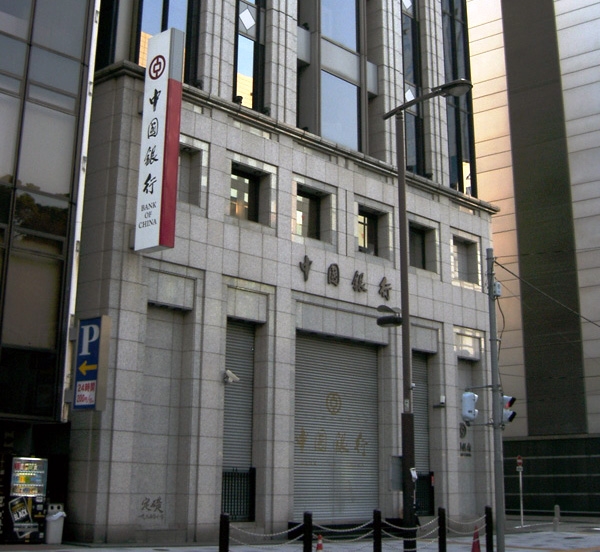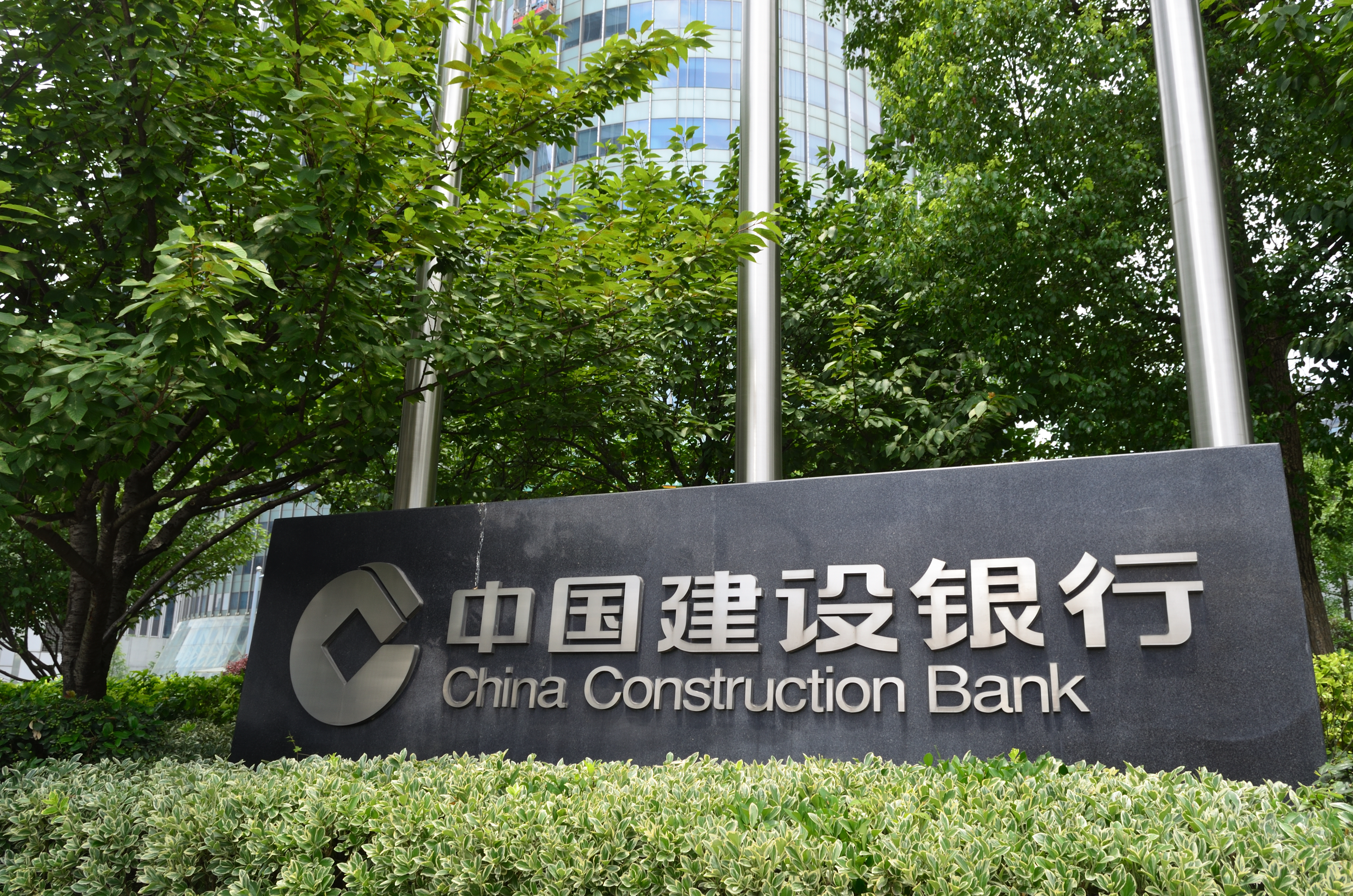|
UnionPay
UnionPay (), also known as China UnionPay () or by its abbreviation, CUP or UPI internationally, is a Chinese state-owned financial services corporation headquartered in Shanghai, China. It provides bank card services and a major card scheme in mainland China. Founded on 26 March 2002, China UnionPay is an association for China's banking card industry, operating under the approval of the People's Bank of China (PBOC, central bank of China). It is also an electronic funds transfer at point of sale (EFTPOS) network, and the only interbank network in China that links all the automatic teller machine (ATMs) of all banks throughout the country. UnionPay cards can be used in 180 countries and regions around the world. In 2015 the UnionPay overtook Visa and Mastercard in total value of payments made by customers and became the largest card payment processing organization (debit and credit cards combined) in the world surpassing the two. However, only 0.5% of this payment volume was ... [...More Info...] [...Related Items...] OR: [Wikipedia] [Google] [Baidu] |
Debit Card
A debit card, also known as a check card or bank card is a payment card that can be used in place of cash to make purchases. The term ''#Plastic card, plastic card'' includes the above and as an identity document. These are similar to a credit card, but unlike a credit card, the money for the purchase must be in the cardholder's bank account at the time of a purchase and is immediately transferred directly from that account to the merchant's account to pay for the purchase. Some debit cards carry a Stored-value card, stored value with which a payment is made (prepaid card), but most relay a message to the cardholder's bank to withdraw funds from the cardholder's designated bank account. In some cases, the payment card number is assigned exclusively for use on the Internet and there is no physical card. This is referred to as a virtual card. In many countries, the use of debit cards has become so widespread they have overtaken cheque, checks in volume, or have entirely replace ... [...More Info...] [...Related Items...] OR: [Wikipedia] [Google] [Baidu] |
Visa Inc
Visa Inc. (; stylized as ''VISA'') is an American multinational financial services corporation headquartered in San Francisco, California. It facilitates electronic funds transfers throughout the world, most commonly through Visa-branded credit cards, debit cards and prepaid cards. Visa is one of the world's most valuable companies. Visa does not issue cards, extend credit or set rates and fees for consumers; rather, Visa provides financial institutions with Visa-branded payment products that they then use to offer credit, debit, prepaid and cash access programs to their customers. In 2015, the Nilson Report, a publication that tracks the credit card industry, found that Visa's global network (known as VisaNet) processed 100 billion transactions during 2014 with a total volume of US$6.8 trillion. This article is authored by a ''Forbes'' staff member. Visa was founded in 1958 by Bank of America (BofA) as the BankAmericard credit card program. Available through ... [...More Info...] [...Related Items...] OR: [Wikipedia] [Google] [Baidu] |
Interbank Network
An interbank network, also known as an ATM consortium or ATM network, is a computer network that enables ATM cards issued by a financial institution that is a member of the network to be used to perform ATM transactions through ATMs that belong to another member of the network. However, the functions which may be performed at the network ATM vary. For example, special services, such as the purchase of mobile phone airtime, may be available to own-bank but not to network ATM cardholders. Furthermore, the network ATM owner may charge a fee for use of network cards (in addition to any fees imposed by the own-bank). Interbank networks enable ATM cardholders to have access to ATMs of other banks that are members of the network when their own bank's ATM is unavailable. This is especially convenient for travelers traveling abroad, where multinational interbank networks, like Plus or Cirrus, are widely available. Interbank networks also permit, through different means, the use of ... [...More Info...] [...Related Items...] OR: [Wikipedia] [Google] [Baidu] |
Card Scheme
Card schemes are payment networks linked to payment cards, such as debit or credit cards, of which a bank or any other eligible financial institution can become a member. By becoming a member of the scheme, the member then gets the possibility to issue cards or acquire merchants operating on the network of that card scheme. UnionPay, Visa and MasterCard are three of the largest global brands, known as card schemes, or card brands. Billions of transactions go through their cards on a yearly basis. Types The card schemes come in two main varieties - a three-party scheme (or closed scheme) or a four-party scheme (or open scheme). Three-party scheme A three-party scheme consists of three main parties as described in the adjacent diagram. In this model, the issuer (having the relationship with the cardholder) and the acquirer (having the relationship with the merchant) is the same entity. This means that there is no need for any charges between the issuer and the acquirer. Since ... [...More Info...] [...Related Items...] OR: [Wikipedia] [Google] [Baidu] |
Financial Services
Financial services are the economic services provided by the finance industry, which encompasses a broad range of businesses that manage money, including credit unions, banks, credit-card companies, insurance companies, accountancy companies, consumer-finance companies, stock brokerages, investment funds, individual asset managers, and some government-sponsored enterprises. History The term "financial services" became more prevalent in the United States partly as a result of the GrammLeachBliley Act of the late 1990s, which enabled different types of companies operating in the U.S. financial services industry at that time to merge. Companies usually have two distinct approaches to this new type of business. One approach would be a bank that simply buys an insurance company or an investment bank, keeps the original brands of the acquired firm, and adds the acquisition to its holding company simply to diversify its earnings. Outside the U.S. (e.g. Japan), non-fina ... [...More Info...] [...Related Items...] OR: [Wikipedia] [Google] [Baidu] |
Bank Of China
The Bank of China (BOC; ) is a Chinese majority state-owned commercial bank headquartered in Beijing and the fourth largest bank in the world. The Bank of China was founded in 1912 by the Republican government as China's central bank, replacing the Qing Dynasty's Ta-Ching Government Bank. It has been the second oldest bank in China still in existence after the Bank of Communications, founded in 1908. From its establishment until 1942, it issued banknotes on behalf of the Government along with the "Big Four" banks of the period: the Farmers Bank of China, Bank of Communications and Central Bank of the Republic of China. After the People's Republic was established in 1949, it has become a national commercial and foreign exchange professional bank. Its original central bank designation was carried on by the newly formed People's Bank of China. As of 31 December 2019, it was the second-largest lender in China overall and ninth-largest bank in the world by market capitali ... [...More Info...] [...Related Items...] OR: [Wikipedia] [Google] [Baidu] |
Agricultural Bank Of China
Agricultural Bank of China (ABC), also known as AgBank, is one of the "Big Four" banks in China. It was founded on 10 July 1951, and has its headquarters in Dongcheng District, Beijing. It has branches throughout mainland China, Hong Kong, London, Tokyo, New York, Frankfurt, Sydney, Seoul, and Singapore. ABC has 320 million retail customers, corporate clients, and nearly 24,000 branches. It is China's third-largest lender by assets. ABC went public in mid-2010, fetching the world's biggest ever initial public offering (IPO) at the time, since overtaken by the Saudi Arabian state-run petroleum enterprise, Saudi Aramco. In 2011, it ranked eighth among the Top 1000 World Banks, by 2015, it ranked third in Forbes' 13th annual Global 2000 list and in 2017 it ranked fifth. It is considered a systemically important bank by the Financial Stability Board. History Since the establishment of the People's Republic of China in 1949, ABC has been formed and abolished several times. On ... [...More Info...] [...Related Items...] OR: [Wikipedia] [Google] [Baidu] |
China Construction Bank
China Construction Bank Corporation (CCB) is one of the "big four" banks in China. In 2015, CCB was the 2nd largest bank in the world by market capitalization and 6th largest company in the world. The bank has approximately 13,629 domestic branches. In addition, it maintains overseas branches in Barcelona, Frankfurt, Luxembourg, Hong Kong, Johannesburg, New York City, Seoul, Singapore, Tokyo, Melbourne, Kuala Lumpur, Santiago de Chile, Brisbane, Sydney and Auckland, and a wholly owned subsidiary in London. Its total assets reached CN¥ 8.7 trillion in 2009, and it is considered a systemically important bank by the Financial Stability Board. Its headquarters is in Xicheng District, Beijing. History CCB was founded on 1 October 1954 under the name of People's Construction Bank of China (), and later changed to China Construction Bank on 26 March 1996. In January 2002, CCB Chairman Wang Xuebing resigned from the bank after being charged with accepting br ... [...More Info...] [...Related Items...] OR: [Wikipedia] [Google] [Baidu] |
Industrial And Commercial Bank Of China
Industrial and Commercial Bank of China Limited (ICBC; ) is a Chinese multinational bank. Founded as a limited company on 1 January 1984, ICBC is a state-owned commercial bank. With capital provided by the Ministry of Finance of China, the bank's Tier 1 capital in 2013 was the largest of one thousand global banks, being the first bank headquartered in China to achieve this distinction in modern history. Subsequently, ranked the largest bank in the world 2017 and 2018, by total assets, (31 December 2020, US$4.324 trillionFrancis Garrido & Saqib Chaudhry (2019) �The world's 100 largest banks published 5 April 2019 by S & P Global – accessed 8 February 2020), ICBC was positioned at 1st in The Bankers Top 1000 World Banks ranking, every year from 2012, and first (2019) on the Forbes Global 2000 list of the world's biggest public companies. Furthermore, ICBC is considered one of the most profitable companies in the world, ranking fourth according to Forbes. It is consi ... [...More Info...] [...Related Items...] OR: [Wikipedia] [Google] [Baidu] |
Dai Xianglong
Dai Xianglong (; born 1 October 1944) is a Chinese politician. He is the former governor of the People's Bank of China, and the former mayor of Tianjin. He currently serves as the president and Chinese Communist Party (CCP) party chief of the National Council for Social Security Fund. Biography Born in Yizheng, Jiangsu Province, Dai graduated from the department of accounting of the Central Institute of Finance and Economics (now the Central University of Finance and Economics), majoring in financial accounting. He joined the Chinese Communist Party in May 1973. After graduation, he served as an accountant at the finance office of the Guishan Coal Mine in Yunnan, an official in its propaganda office, vice secretary of the CCP committee at the second industrial zone, and an official at the political department of the Coal Industrial Bureau in Yunnan. Later, he moved to Jiangsu and became an official of the Agricultural Bank of China Jiangsu Branch, vice director of its a ... [...More Info...] [...Related Items...] OR: [Wikipedia] [Google] [Baidu] |
Paramount Leader
Paramount leader () is an informal term for the most important political figure in the People's Republic of China (PRC). The paramount leader typically controls the Chinese Communist Party (CCP) and the People's Liberation Army (PLA), often holding the titles of CCP General Secretary and Chairman of the Central Military Commission (CMC)."How China is ruled" . The ( president) or |

.jpg)




